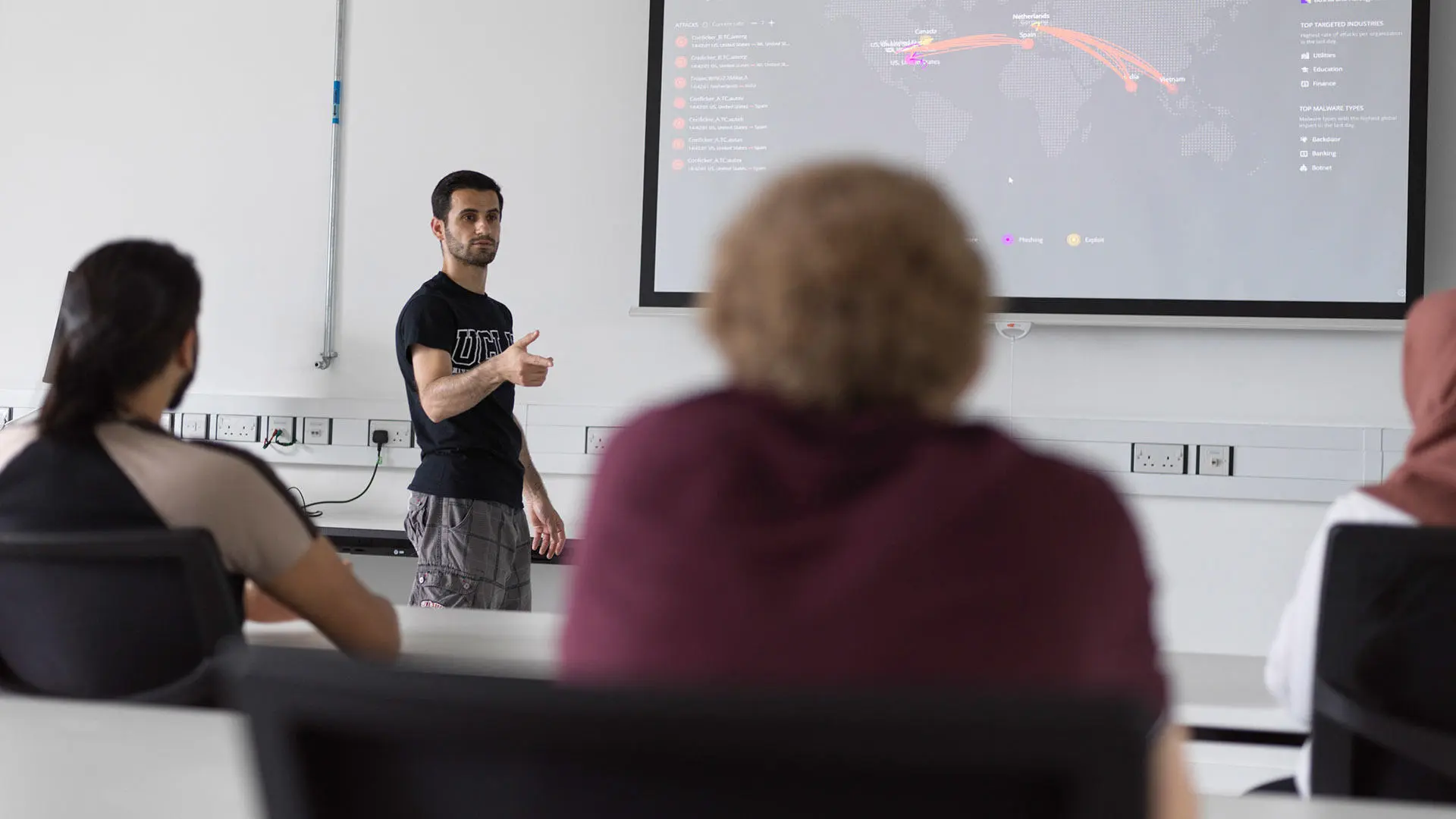Our Software Engineering Degree Apprenticeship focuses on the design and development of software solutions to complex problems.
Why study with us
- Our High Integrity Software Engineering Degree Apprenticeship course was developed to meet industry needs.
- You’ll gain the skills to produce technical documents, design software solutions to engineering problems and implement programming solutions.
- Our degree apprenticeship prepares you for a career in a rapidly changing industry, with new ideas, applications, security threats and evolving technology.
Important information
- This course is only available to UK students.
Who is this course for?
If you're interested in coding and problem-solving, our High Integrity Software Engineering Degree Apprenticeship is for you. The course provides hands-on industry experience, where you get to apply knowledge to real-world problems. It is practical enough to allow you to transition directly into industry, yet sufficiently academic to enable you to progress onto a higher degree if desired.
What you'll do
- Gain the skills and knowledge to work at the interface between hardware and software.
- You'll apply what you learn to the workplace, as our degree apprenticeship allows you to gain a degree alongside real-world experience.
- You’ll be taught by staff with a wide variety of industrial and research backgrounds, and become part of our vibrant research culture.
Industry Links
Future careers
Our High Integrity Software Engineering Degree Apprenticeship gives you a broad IT background. It prepares you for an exciting career in a variety of areas such as:
- Web development
- Computer networking
- Security
- Image and signal processing
- Embedded real-time system development
Entry requirements
Minimum qualifications:
- Candidates wanting to enrol on the Degree Apprenticeship should have Maths and English GCSE grade A-C or equivalent, and a minimum of 104-112 points at A2 (Grades BCC) or acceptable alternatives. These include: BTEC Subsidiary Diploma, Extended Diploma at Level 3, BTEC Diploma in Information Technology, Science or an Advanced Apprenticeship in a related subject. This will include two STEM-based subjects such as Maths, Physics, ICT, Computing or Electronics, plus five GCSEs at Grade 4 and above** including Mathematics, English and Double Science or equivalent qualification. (*Equal to 240 UCAS points prior to 2017, **Equal to Grades C and above). (ST0013 standard recommendations)
- We will also offer a non-standard entry route for people who do not meet the qualification requirements, but who have relevant work experience.
Modules
Every effort has been made to ensure the accuracy of our published course information. However, our programmes are subject to ongoing review and development. Changing circumstances may cause alteration to, or the cancellation of, courses. Changes may be necessary to comply with the requirements of accrediting bodies or revisions to subject benchmarks statements. We may also make changes to keep courses updated and contemporary, or as a result of student feedback. We reserve the right to make variations if we consider such action to be necessary or in the best interests of students.
Information for employers
An apprentice is employed to do a real job while studying for a formal qualification, usually for one day a week.
Benefits to the employer
- Apprenticeships can provide a way to develop your business through investing in your own workforce.
- Successful graduates will have an increased ability and skill set within the sector, and enhance a company’s reputation with external customers.
- Apprenticeships can provide a way to succession plan, keeping skills within your business.
This course is delivered by the School of Engineering and Computing
For information on possible changes to course information, see our essential and important course information
You can find regulations and policies relating to student life at the University of Lancashire on our student contract page
